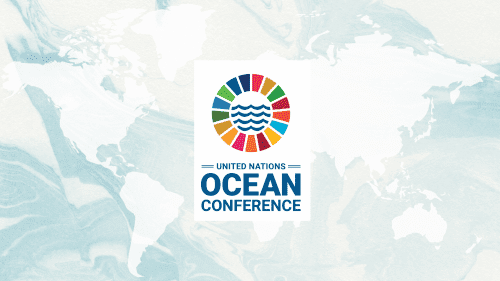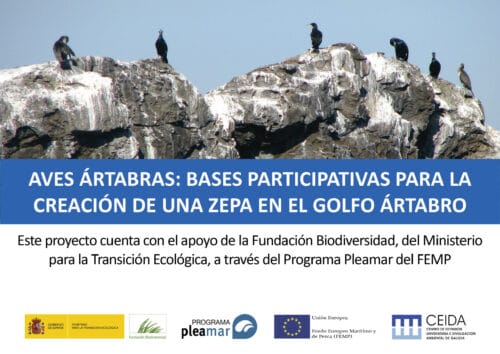UN Ocean Conference

Author: IOC-UNESCO.
What is the UN Ocean Conference?
The UN Ocean Conference is the United Nations conference dedicated to the Sustainable Development Goal 14 with the aim to mobilise action for the conservation, protection and sustainable use of the ocean, seas and the marine resources.
The first UN Ocean Conference was held in June 2017 in the United Nations Headquarters in New York City (U.S.A.) and co-hosted by the Governments of Fiji and Sweden. It was composed of heads of State and Government, civil society representatives, business leaders, stakeholders, academics, scientists and ocean and marine life advocates from over 150 countries.
Why an entire conference dedicated to the ocean and maritime topics?
The ocean links us all together as a network. The ecosystems, the biodiversity of flora and fauna species, the abundance of its resources, and its energy are vital to our planet. The health of the ocean is crucial to the well-being of humanity and the entire planet, yet anthropogenic activity has deteriorated and endangered the ocean and ourselves at the same time.
Despite this, mankind has mistreated these life-giving ocean to the point where around 40% of marine ecosystems have been harmed. For far too long, people believed the ocean was endless and unaffected by human activity. Scientists began to raise initial concerns about the health of the environment and the ocean as early as the 1970s, but only recently these issues have assumed adequate relevance from the political and media point of view.
The future effects this will have on the planet’s ecosystem are not yet clearly known, but the consequences for humanity cannot be good.
We are starting to see and live with these consequences. Extreme weather events affect millions of people around the world, like heat waves and heavy rains. There are gigantic vortexes of rubbish circulating in every ocean basin, which accumulate on the ocean surface, in the water column and even at the deepest point of the Earth. Hypoxic dead zones are expanding along our coasts, and toxic algae and mucillagine blooms are suffocating marine and coastal environments. The coral reefs that support the life of multitudinous forms of coral are bleaching, becoming white graveyards devoid of life.
If this trend persists, marine life in general will be seriously threatened. This has resulted in habitat destruction and loss of marine biodiversity. All these problems arise from human activities. Therefore, it is up to human beings to find the solutions, and implement concerted actions.
2022 United Nations Ocean Conference – Lisbon
This year, the UN Ocean Conference in Lisbon,, co-hosted by the Governments of Kenya and Portugal, comes at a critical time as the world is seeking to address many of the deep-rooted problems of our societies laid bare by the COVID-19 pandemic and which will require major structural transformations and common shared solutions that are anchored in the SDGs. To mobilise action, the Conference will seek to propel much needed science-based innovative solutions aimed at starting a new chapter of global ocean action.
It is worth mentioning the growing interest and importance gained in the latest years in the field of Ocean Literacy. The core mission of OL is making people aware of how important the ocean is in our daily lives, how we depend on it, as well as the impact that individual actions and behaviours have on the ocean and its health.
It has become clear that people care about what they love, and they love what they know: Ocean Literacy aims to promote and strengthen the emotional bond between the ocean and the society, enhancing the global efforts for ocean protection and fostering ocean-friendly behaviours.

The UN Ocean Conference hosted many important momentums, including the nomination of the new UNESCO Goodwill Ambassador for the ocean and youth, the Brazilian champion surfer Maya Gabeira.
The Sustainable Development Goal 14 of the Agenda 2030
The 2030 Agenda is articulated around 17 Sustainable Development Goals (SDGs), SDG 14 “Conserve and sustainably use the oceans, seas and marine resources for sustainable development” sets out specific targets to conserve and sustainably use the ocean basins, seas and marine resources for sustainable development.
The SDG14 targets highlight the necessity to work and improve in the following areas: marine pollution, conservation through marine protected areas, ocean acidification, regulation of fishery practices, and increase research to foster scientific knowledge and awareness.
SDG 14 is the only globally agreed roadmap for the conservation and sustainable management of marine resources. Its faithful implementation is therefore our best hope for remedying the ocean’s challenges.
The Agenda 2030 is connected to the ocean.
ℹ️ To learn more about the SDG 14 targets visit: Goal 14: Life below Water – SDG Tracker.
The first UN Ocean Conference – New York City 2017
The first UN Ocean Conference was a decisive preparation step for the start of the UN Decade of Ocean Science for Sustainable Development. Specifically, it promoted progress on the implementation of Sustainable Development Goal 14, as a crucial part of the 2030 Agenda adopted by the 193 UN Member States in 2015. The goal called for efforts to conserve and sustainably use the ocean, seas and marine resources for sustainable development.
This first conference intended to be a game-changer in reversing the health decline of our ocean, aiming to a greater involvement of the society, private companies and policy-makers and interested stakeholders in general. The coordinated and effective action of concrete new partnerships represented – and still does – the key element for supporting the SDG14 and for bringing up tangible solutions. The knowledge and skills exchange among different parties is an essential step towards sustainable development and active restoration of our marine ecosystems.
The UN Secretary-General António Guterres stated that decisive and coordinated global actions could solve the problems resulting from anthropogenic activity, nominating Ambassador Peter Thomson of Fiji as his Special Envoy for Oceans. Peter Thomson underlined the importance of the conference: “If we want a secure future for our species on this planet, we need to act now on ocean health and on climate change“.
The main elements pursued to restore the ocean were settled, aiming for a healthy, clean, resilient, predictable, safe and inspiring ocean. This first UN Ocean represented indeed the first substantial step and call to action to gain the science we need for the ocean we want.
Sources:
- 2022 UN Ocean Conference | United Nations
- The Ocean Conference: A Game-Changer | United Nations
- UN Ocean Conference 2022 – EU4OceanObs
- UN Ocean Conference
- UN Ocean Conference 2022 | United Nations Development Programme
- The Ocean Conference | 5-9 June 2017 About .:. Sustainable Development Knowledge Platform
- The Science we need for the ocean we want: the United Nations Decade of Ocean Science for Sustainable Development (2021-2030)


